Product Manager interview
Set yourself up for the Product Manager interview
Preparing for an interview is like getting on board a spaceship – full of settings, buttons, and complex instructions. It’s often unclear where to start and what the fundamentals are. The key to success lies in your initial preparations and setting the right expectations. Over the past year, I've helped dozens of people prepare for Product Manager (PM) interviews across various companies, from startups to large corporations, and discovered the importance of managing these initial settings correctly. Here’s a list of important aspects to consider.
Define the Company Stage
Are you applying for a PM role in an A-series startup? A small business with proven product-market fit? Or a large corporation with thousands of employees? The interview process and the questions you'll be asked will significantly vary based on the company's stage.
For large companies, the interview process is usually formalized, ensuring every candidate goes through the same stages. For a PM interview, these stages might include:
This formalization ensures that all candidates have similar experiences and are equally evaluated. In contrast, the interview process in early-stage startups is more chaotic and varies from one company to another. Here are some tips for startup interviews:
For large companies, the interview process is usually formalized, ensuring every candidate goes through the same stages. For a PM interview, these stages might include:
- Product Sense Interview
- Product Execution Interview
- Written Exercise
- Leadership Interview
- Analytical Interview
- Technical Sense Interview
This formalization ensures that all candidates have similar experiences and are equally evaluated. In contrast, the interview process in early-stage startups is more chaotic and varies from one company to another. Here are some tips for startup interviews:
- You'll likely be speaking with key people, such as the CEO or CPO. This is your chance to convince key decision-makers that you are the right person to drive their business forward.
- Expect more experience-centric questions, focusing on your past experiences as a PM rather than hypothetical scenarios. Tailor your experiences to match what the company is looking for.
Example: Jane, a Product Designer with several years of experience, wants to switch to a PM role. In her previous role, she handled some PM tasks like backlog prioritization and user stories creation but lacks solid PM experience. Applying for a PM position in a quickly growing startup, she should highlight her strengths: multitasking, knowledge of execution aspects (sprint-related activities), and mentorship from a senior PM.
Note: Expect a call with the engineering team working on the product. Team spirit is crucial, and startups often prioritize ensuring a team match, which is not always feasible for larger companies.
Connect Role Description, PM Ladder, and Yourself
Understanding the PM ladder within the company can help you prepare better. There are generally five PM ranks:
Questions, especially behavioral ones, will vary significantly based on the rank. Junior and medium positions focus on execution and planning, while senior positions require strategic thinking, team leadership, and managing uncertainty. Most role descriptions are vague and filled with buzzwords.
Do some detective work:
Be honest with yourself. Don't apply for a senior role if you only have junior experience and a few online courses. Evaluating your hard skills based on a PM matrix can help.
- Associate PM/Junior PM
- PM
- Senior PM
- Lead PM
- Chief PM
Questions, especially behavioral ones, will vary significantly based on the rank. Junior and medium positions focus on execution and planning, while senior positions require strategic thinking, team leadership, and managing uncertainty. Most role descriptions are vague and filled with buzzwords.
Do some detective work:
- Research PMs who have joined the company and create a high-level org chart.
- Prepare questions like “How does the PM org look in the company?”
Be honest with yourself. Don't apply for a senior role if you only have junior experience and a few online courses. Evaluating your hard skills based on a PM matrix can help.
Set the Correct Communication Settings
Communication settings are crucial but often overlooked. Here are key tips:
- Speak Slowly: Speaking slowly shows confidence and ensures clarity. It also gives you time to plan your next sentences.
- Smile: Build rapport and appear confident. Let your smile come and go naturally.
- Limit Talking to 2 Minutes: Speaking in short chunks allows you to validate your direction, plan your answers, and turn the interview into a dialogue.
- Sell Yourself: Use “I” instead of “we” when discussing solo achievements. Teamwork is great, but remember, you’re selling yourself in the interview.
- Avoid Crazy Use Cases: Be mindful of the examples you use. They should be relevant and appropriate for the product and context.
Conclusion
Hopefully, this article will help you land your dream job! Remember, the best way to pass any interview is to practice, practice, practice.
Read related posts
